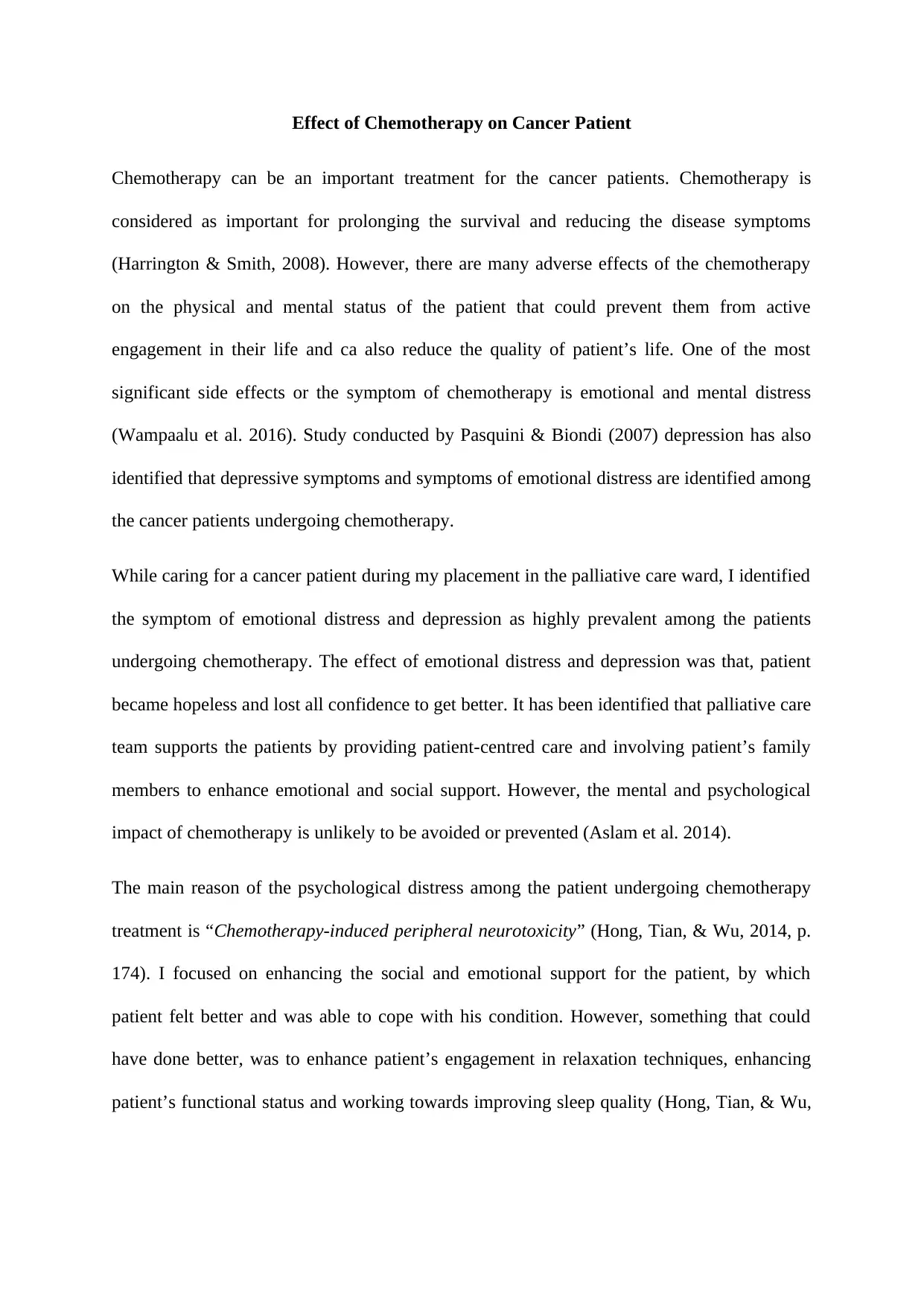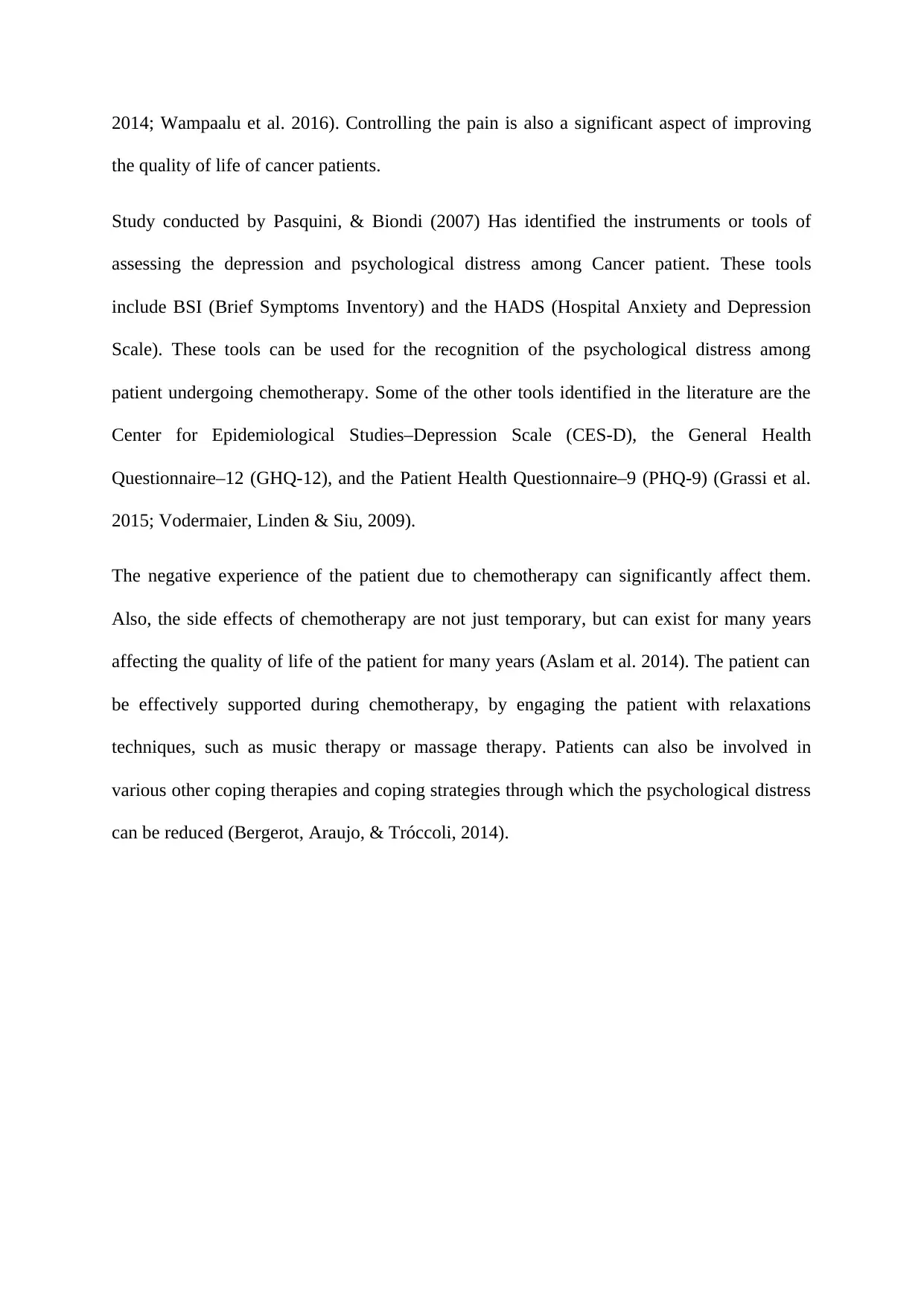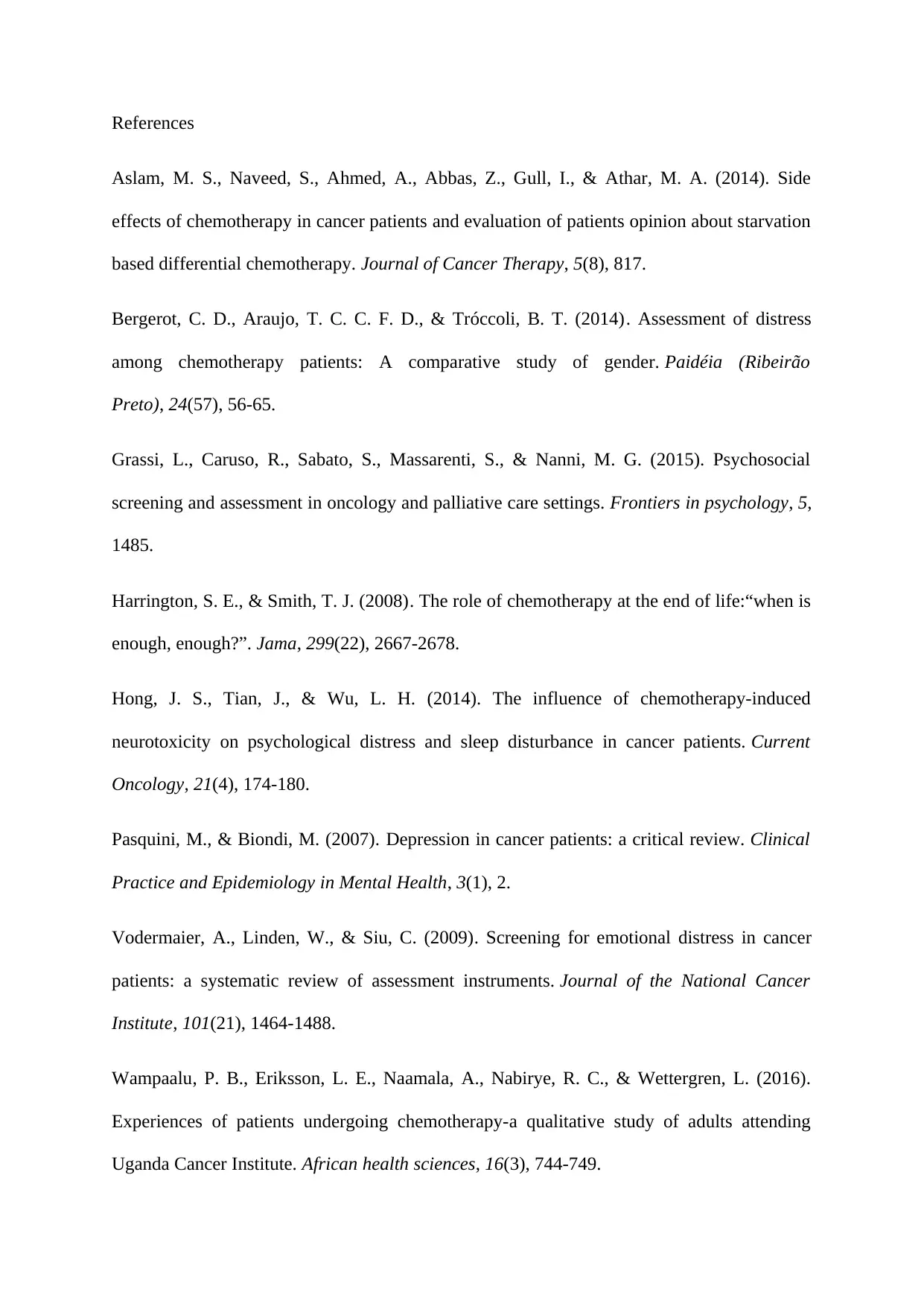CNA512 Oncology Nursing: Chemotherapy's Impact and Patient Care
VerifiedAdded on 2023/06/10
|4
|966
|181
AI Summary
This reflective assignment discusses the impact of chemotherapy on cancer patients, focusing on the emotional and mental distress experienced during treatment. It highlights the importance of palliative care in providing patient-centered support and involving family members. The reflection identifies chemotherapy-induced peripheral neurotoxicity as a significant cause of psychological distress and suggests enhancing social and emotional support, relaxation techniques, and pain management to improve patients' quality of life. Assessment tools like BSI and HADS are mentioned for recognizing psychological distress, and coping therapies like music and massage therapy are recommended. The author reflects on a clinical placement experience, emphasizing the need for a holistic approach to managing chemotherapy's side effects and improving patient outcomes. Desklib offers a variety of solved assignments and study resources for students.
1 out of 4











![[object Object]](/_next/static/media/star-bottom.7253800d.svg)